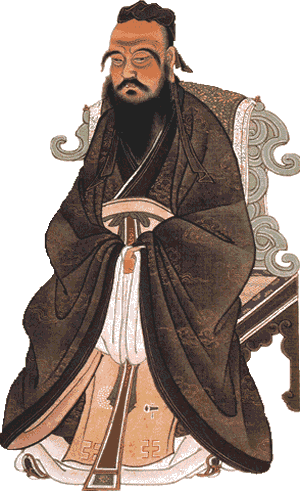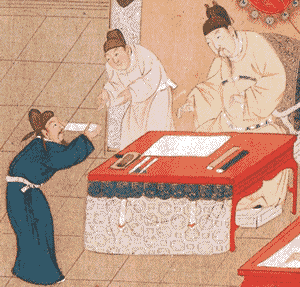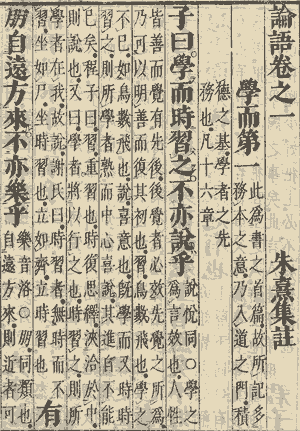For nearly 2500 years, the philosophy of Confucius has guided Chinese thinking. Confucius emphasized ethical leadership, moral behavior, and accepting a person’s proper place in society.
Although he was not well known when he was alive, Confucius is now the most remembered person from ancient China. Confucius was born in 551bce, in a period of Chinese history known as the Age of Warring States. This period saw China divided into many small kingdoms. The local rulers fought one another and were often cruel to their people.
Confucius never held a position of authority, but he was respected as a sage, or wise person. He advised that order and stability could not be restored to China without good leaders.
Until the time of Confucius, Chinese governments were run by noble families. Still, the great teacher said officials should instead earn their jobs through education and talent rather than through family connections. Confucius believed leaders should be knowledgeable, conscientious, and ethical. He concentrated on creating junzu—superior individuals—through education.

Confucius_Chinese_History
Confucius (551–479 BC) is the most remembered person from ancient China.
Many years after Confucius died, China set up an examination system that lasted over 1300 years. Students had to show that they read and wrote well. They also had to demonstrate their knowledge of Confucius and his philosophy. Although the Confucian examination system is no longer used in China, government workers must still pass tests that are inspired by the old Confucian system.
Confucius was concerned with how people treated one another. The great sage said, “What you do not want done to yourself, do not do to others.” He stressed that anyone, rich or poor, could become a superior person by developing ren. This Chinese word refers to the kindness and love each person should have for all others and for nature.
Confucius believed that society functioned best if everyone respected laws and behaved according to the duties demanded by their positions. He taught that parents were superior to children, men superior to women, and rulers superior to subjects. Yet, all of them had duties. Confucius said, “Let the ruler rule as he should and the minister be a minister as he should. Let the father act as the father should and the son act as the son should.”

Examination_system_of_Chinese_History
Many years after Confucius died, Chinese students were required to demonstrate that they could read and write well. The exams were based on Confucius’ philosophy and were used by the Chinese government for over 1300 years.
Even lacking an office or title, Confucius left an amazing legacy – in other words, something handed down from the past. Confucius never wrote down his philosophy, but he made an enormous impact on many people. His students compiled a book known as The Analects after Confucius died. The Analects became the model for official and personal behavior for many Chinese people. Many governments in China have tried to suppress the teachings of Confucius, but his philosophy remains an important part of Chinese culture to this day.
Resources
Download this lesson as Microsoft Word file or as an Adobe Acrobat file.
View a Powerpoint presentation of this lesson.
Listen as Mr. Dowling reads this lesson.
Lexile Measure 950L
Mean Sentence Length 14.64
Mean Log Word Frequency 3.54
Word Count 410
Mr. Donn has an excellent website that includes a section on China.

The_Analects_of_Confucius
The Analects of Confucius is the collection of sayings and ideas attributed to the philosopher.


